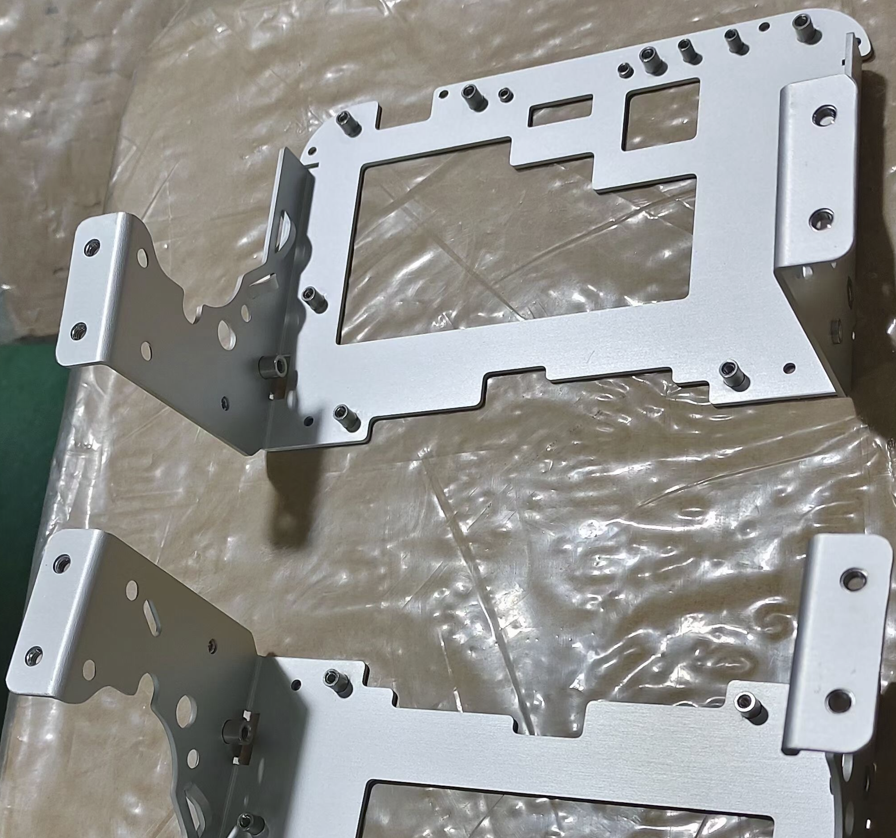In our production practice ,we deal lots of customized coating for different parts everyday.
Chemical coating and anodizing are 2 of the most commonly used for aluminum machined parts and aluminum sheet metal parts.
Chemical coating and anodizing are two different processes used to form a protective layer on aluminum, and they have some key differences:
1. Process: Chemical coating, also known as chromate conversion coating or chemical coating, is to immerse aluminum in a chemical solution to form a thin protective film on the surface. Anodizing, on the other hand, is an electrochemical process that creates a thicker, more durable oxide layer on the aluminum surface.
2. Thickness: Anodizing typically produces a thicker protective coating compared to chemical films. This makes anodized aluminum more resistant to wear, corrosion and wear.
3. Appearance: Anodizing can come in a variety of colors and finishes, including clear anodizing, while chemical films often produce a more uniform, iridescent or yellowish appearance.
4. Durability: Anodized aluminum tends to be more durable and longer-lasting than chemically coated aluminum, especially in harsh environments or high-wear applications.
5. Applications: Anodizing is commonly used in architectural, automotive, and aerospace applications that require a durable and aesthetically pleasing surface finish. Chemical films are commonly used in military and aerospace applications where corrosion resistance and electrical conductivity are important.
In summary, while both chemical coatings and anodizing provide a protective finish to aluminum, anodizing generally provides a thicker, more durable, and more customizable finish than chemical coatings.
Anodizing or applying a chemical coating to aluminum before installing steel hardware serves several important purposes:
Corrosion resistance: Anodizing and chemical films provide a protective barrier on the aluminum surface, helping to prevent corrosion and oxidation. This is especially important when installing steel hardware, as it may come into contact with aluminum and potentially cause galvanic corrosion. Protective coatings on aluminum help reduce this risk.
Surface Preparation: Anodizing and chemical films create a more uniform and cleaner surface on aluminum, which can improve the adhesion and performance of coatings or adhesives used to install steel hardware. This helps ensure a strong and long-lasting bond between aluminum and steel hardware.
Aesthetic considerations: Anodizing can also provide a decorative finish to aluminum, which is ideal for architectural or aesthetic purposes. This enhances the overall appearance of the unit and provides a more polished appearance.
Electrical insulation: In some cases, anodizing or chemical films can provide electrical insulation to aluminum surfaces, which is important when installing steel hardware in electrical or electronic applications.
In summary, anodizing or chemically coating aluminum before installing steel hardware can help protect the aluminum from corrosion, improve surface preparation for bonding, enhance aesthetics, and provide electrical insulation when necessary. These steps can help extend the life, performance, and appearance of your installed hardware.
HY Metals provide one-stop custom manufacturing services including sheet metal fabrication and CNC machining, 14 years experiences and 8 fully owned facilities.
Excellent Quality control, short turnaround, great communication.
Send your RFQ with detailed drawings today. We will quote for you ASAP.
WeChat:na09260838
Tell:+86 15815874097
Email:susanx@hymetalproducts.com
Post time: Aug-12-2024



